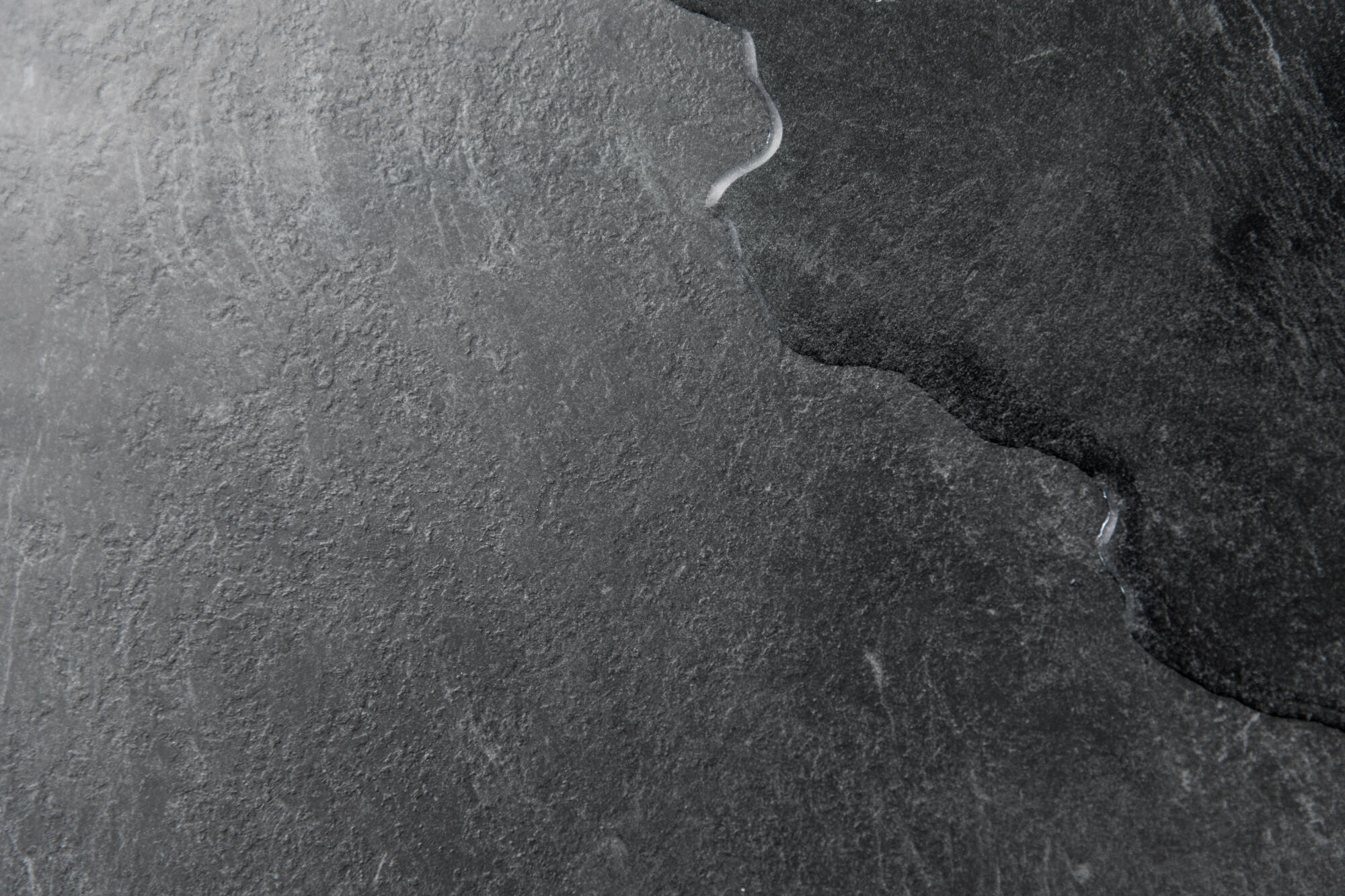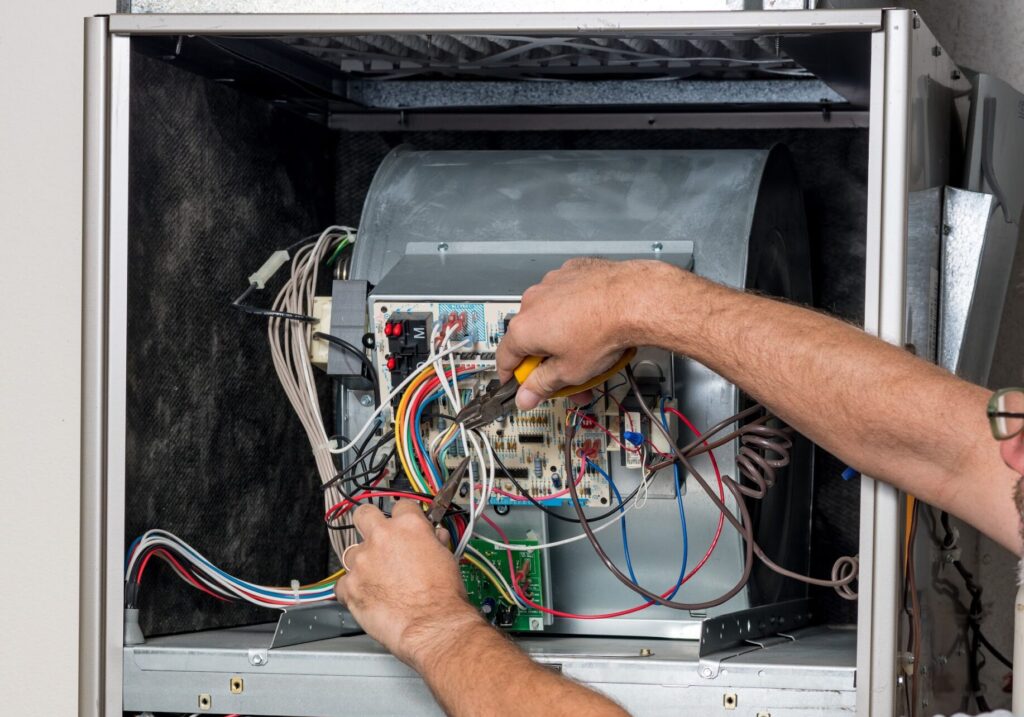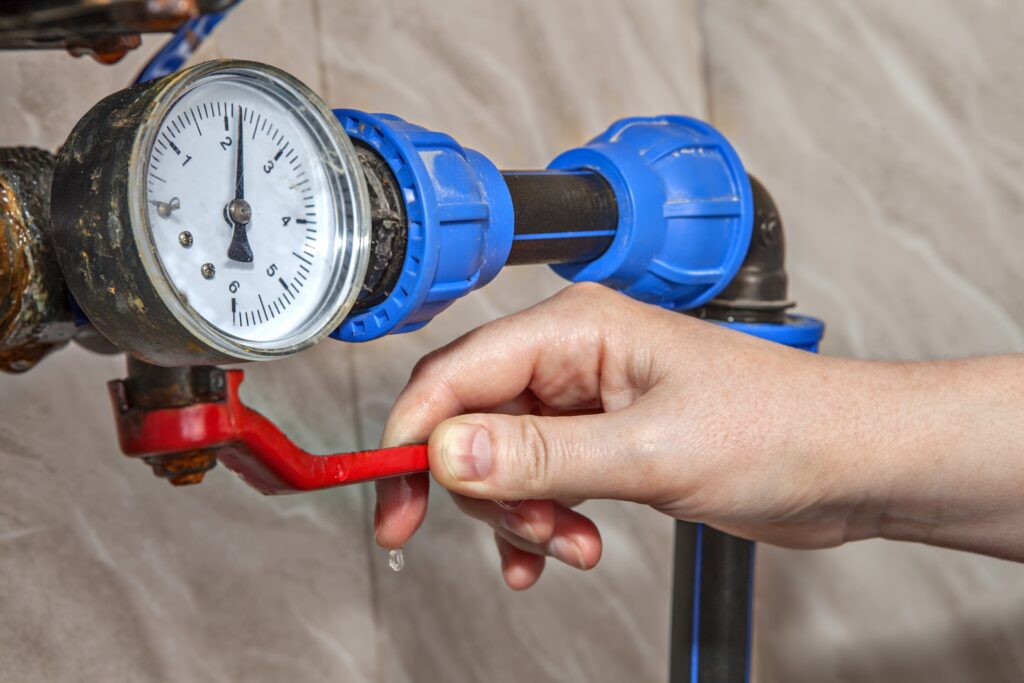
Are your water bills higher than they used to, despite no significant change to your household’s water use? Have you noticed how your taps and shower heads produce water with reduced pressure? Perhaps your home feels muggy and oppressive, and your indoor air smells like mold.
Those are all symptoms of water leaks. These problems are prevalent; the average U.S. home has water leaks that waste around 10,000 gallons yearly! About 10% of houses even waste over 90 gallons daily due to leaking plumbing fixtures.
The good news is that you can use water leak detection methods to determine if your home in Peachtree City has such problems. We’ll discuss them in detail, so read on.
Toilet Leak Test
When you flush your toilet, its flapper drains the water in the tank into the bowl. Once you let go of the flush handle, the flapper returns to its original position, sealing the valve where the water passes through. With the valve closed, the tank begins to fill up again.
Over time, toilet flappers degrade, and their rubber components decay. They can also accumulate minerals, especially if you have hard water. Either way, these issues can make them defective and allow the water in the tank to leak continuously into the bowl.
You can check your toilet for leaks by putting one drop of food coloring into its tank. Then, monitor the color of the water in the bowl. If it changes, that’s a sign of a leak.
Flush the toilet immediately after the test to prevent the food coloring from staining the tank and bowl. Then, call a local plumbing professional to help you fix or replace your leaking toilet.
Water Meter Test
The water meter test is ideal for determining if you have hidden water supply pipes that leak.
For more accurate results, conduct this test when no one else is at home. That way, you can ensure no one actively uses water. If this isn’t possible, ask your household members to refrain from using water for two hours.
Grab your smartphone or a pen and paper before heading to your water meter. In many Peachtree City homes, the water meter is in the front yard, inside a metal box by the curb or the front sidewalk. Most have a digital face with numbers, but older models have a moving hand.
Next, snap a photo of or write down the numbers you see on the meter’s display.
Wait for at least two hours before checking the meter.
Interpreting the Results
If the numbers on your water meter are the same, great; it likely means you don’t have plumbing leaks.
However, if there was a change, it indicates you have leaking water pipes. That’s even more likely if your water bills have increased for no apparent reason. The same goes true if you hear running water, even with taps or showerheads closed, and you experience low water pressure.
Next Step
If the test results indicate potential leaks, it’s best to call a licensed plumbing contractor in Peachtree City ASAP. These experts use innovative and advanced leak detection systems and tools to pinpoint sources of leaks. They use these technologies to locate water leaks in pipes under the floor, inside walls, or ceilings.
Once they’ve identified the sources, they can discuss the most appropriate solutions, such as pipe repairs or replacements.
For minor leaks, repairs are often more cost-effective and less time-consuming. However, if you have multiple severe leaks and your plumbing pipes are also old, the experts may recommend replacing them.
Indoor Humidity Test
Another way to detect leaks in your home is to test its indoor humidity levels with a hygrometer. You can buy this instrument at a local hardware or home improvement store.
A hygrometer can tell you how humid the air inside your home is. The more humid it is, the more water vapor it contains.
The U.S. EPA recommends keeping indoor humidity levels below 60%, with the ideal range between 30% and 50%. That can help prevent mold growth, discourage pests, and control dust mites.
So, if your hygrometer registers a humidity level of over 60%, it indicates moisture problems. These issues are likely to arise if you have leaking plumbing pipes. An air conditioner leaking water (e.g., it has frozen coils or a leaking or overflowing drain pan) can also contribute to high indoor humidity.
Water Heater Tank Inspection
Conventional water heaters have an average lifespan of 6 to 12 years. However, they can fail sooner due to improper installation and a lack of plumbing maintenance. For example, they may spring leaks due to rust build-up that causes internal corrosion.
Leaking water heaters can cause water damage, promote mold growth, and increase water bills. So, as part of your leak prevention and detection strategies, thoroughly inspect your hot water tank. Be sure to shut the system off first by closing the gas valve or turning off its circuit breaker.
Next, check the area around the tank. Look for signs of water pooling around its base. If there’s any, you likely have a leaking tank.
In that case, shut off your hot water system’s water supply valve. Next, call a plumbing company offering emergency leak response services. Tell them about your leaking water tank so they can come ASAP and fix the problem.
While waiting for the pros, mop the wet area to prevent water damage and lower the odds of molds growing there.
Follow These Water Leak Detection Methods
From toilet tank to water meter tests and water heater inspections, these are all effective water leak detection methods you can try today. Or, for more accurate results, hire local plumbing professionals who use the latest leak detection technologies.
Progressive Heating, Air, and Plumbing can help you identify and locate plumbing leaks throughout your home in Peachtree City, GA. We’ve served customers in Coweta County and metro Atlanta, GA, for nearly 30 years. So, you can count on our extensive experience and expertise.
If you’re ready to find and fix all the plumbing leaks in your home, call us today! We’ll happily guarantee you’ll be 100% satisfied with our services.






